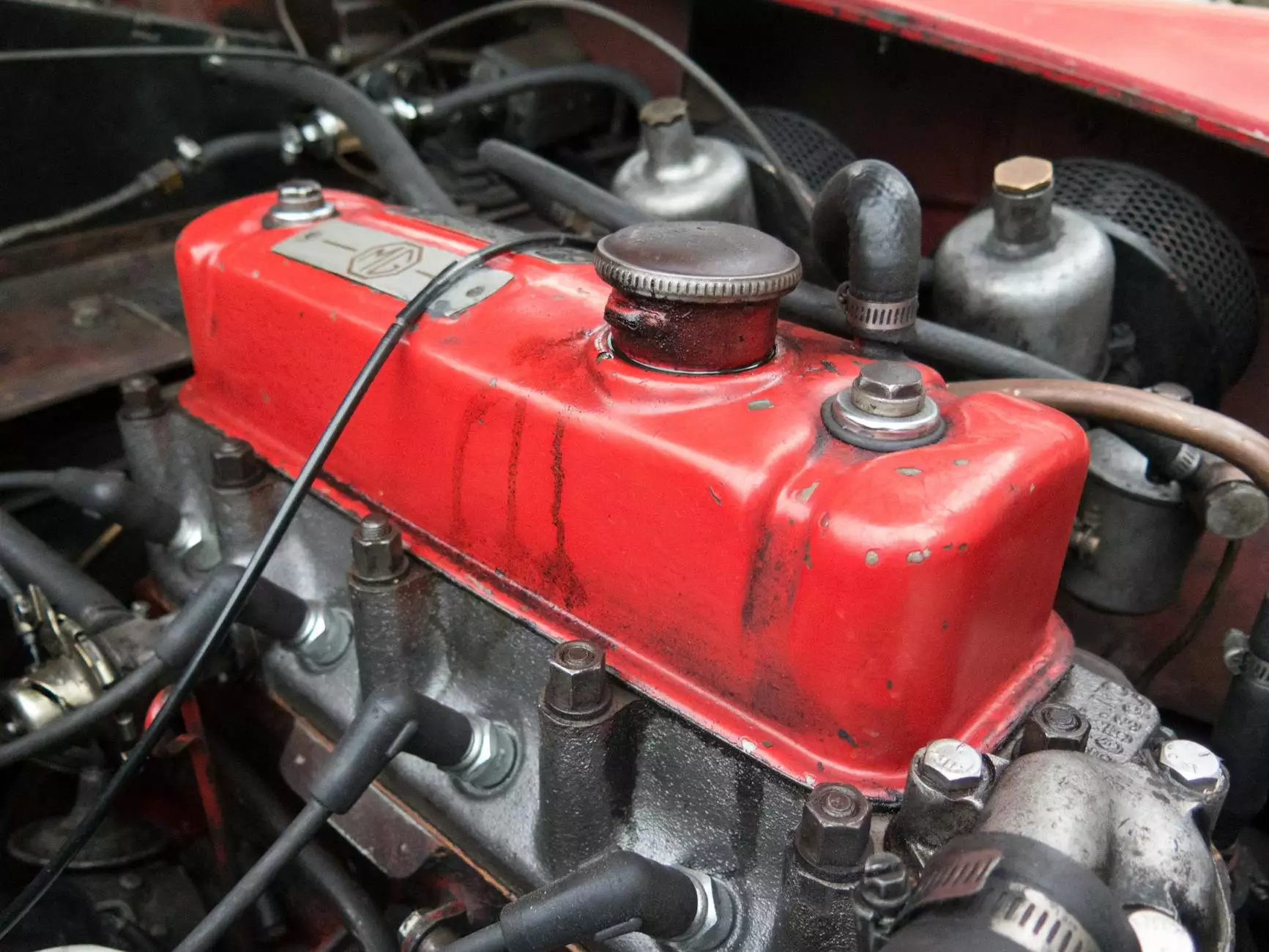Understanding the Transmission Control Valve Body: A Comprehensive Guide

The transmission control valve body is a crucial component in modern automatic transmissions. It acts as a central hub that manages the flow of transmission fluid, controlling various shifting operations. In this article, we will delve into the detailed workings of the transmission control valve body, its significance in the automotive landscape, and how it can enhance performance and longevity of your vehicle.
What is a Transmission Control Valve Body?
The transmission control valve body is an integral part of an automatic transmission system. Its primary responsibility is to direct hydraulic fluid to the appropriate clutches and bands, which ultimately facilitates the gear shifting process. By doing so, it ensures smooth operation and optimal performance of the vehicle.
The Structure of the Transmission Control Valve Body
Typically made of aluminum or composite materials, the transmission control valve body houses an intricate system of channels, valves, and solenoids. Here are some of its key components:
- Valves: These regulate the flow of transmission fluid, determining the pressure and direction of the fluid needed for specific functions.
- Channels: Machined into the valve body, these pathways guide the transmission fluid to the required areas.
- Solenoids: Electrically controlled devices that open and close valves in response to input from the vehicle's onboard computer.
- Check Balls: Small spherical components that help maintain pressure and control the flow of fluid.
The Role of the Transmission Control Valve Body in Vehicle Performance
A properly functioning transmission control valve body is essential for the overall efficiency of the vehicle. Let’s explore how it contributes to performance:
1. Smooth Gear Shifts
One of the most vital functions of the transmission control valve body is to ensure smooth gear shifts. When the driver accelerates or decelerates, the valve body responds promptly to these changes, ensuring that the gear changes happen seamlessly. This functionality not only enhances driving comfort but also aids in better fuel efficiency.
2. Improved Fuel Efficiency
With the correct management of hydraulic fluid, the transmission control valve body facilitates optimal engine performance, which can lead to improved fuel economy. It helps the engine understand when to shift gears effectively, which reduces engine workload and conserves fuel. When every component functions harmoniously, the vehicle consumes less fuel, a win-win for both the driver and the environment.
3. Enhanced Transmission Longevity
A well-maintained transmission control valve body contributes significantly to the life span of the transmission itself. By ensuring that fluid pressure is correctly managed, it reduces wear and tear on other transmission components. Regular checks and services can help prevent major repairs or replacements, saving you time and money in the long run.
Common Issues with Transmission Control Valve Bodies
Despite their robust design, transmission control valve bodies can encounter several issues that may impact vehicle performance. Here are some of the most common problems:
1. Fluid Leaks
Fluid leaks are a significant indicator that something is wrong with the transmission control valve body. These can be caused by worn seals, loose bolts, or a cracked housing. If you notice transmission fluid pooling under your vehicle, it’s crucial to address this immediately to prevent further damage.
2. Erratic Shifting
An uncontrolled or jerky shifting experience often indicates a malfunctioning valve body. This could be due to issues with the valves themselves or the solenoids. When they do not operate correctly, the hydraulic pressure can become unbalanced, leading to erratic gear shifts.
3. Check Engine Light
In modern vehicles, a malfunctioning transmission control valve body may trigger the check engine light. This warning signifies that the vehicle's onboard diagnostics have detected a problem. It is advisable to have the codes read and the underlying issues diagnosed promptly.
Maintaining Your Transmission Control Valve Body
Proper maintenance of the transmission control valve body can significantly enhance vehicle performance and longevity. Here are some essential maintenance tips:
1. Regular Fluid Changes
Transmission fluid should be changed at intervals recommended by the manufacturer. Old fluid can become contaminated and lose its effectiveness. Regular changes help maintain the hydraulic pressure necessary for the valve body to function correctly.
2. Inspections
Periodic inspections of the transmission system, including the valve body, can catch potential issues early. Look for signs of fluid leaks, discoloration of the fluid, or erratic shifting, and consult a professional if you notice any of these symptoms.
3. Professional Servicing
When it comes to the transmission control valve body, professional servicing can be invaluable. An experienced technician can accurately diagnose and address any issues that may not be evident to the average car owner.
When to Replace Your Transmission Control Valve Body?
There are instances when repairs may not suffice, and a replacement becomes necessary. Here are some signs that it might be time to consider replacing your transmission control valve body:
1. Repeated Malfunctions
If you find yourself consistently having to fix problems related to the valve body, it may be more cost-effective to replace it rather than attempting repeated repairs. Persistent issues often signal that the component has reached the end of its service life.
2. Severe Damage
Physical damage to the valve body, such as cracks or corrosion, can compromise its integrity. If damage is severe, replacement is usually the best course of action to ensure reliable vehicle operation.
3. Compatibility with Enhanced Performance Parts
For automotive enthusiasts looking to enhance vehicle performance, upgrading to a high-performance transmission control valve body might be advisable. These specialized components can provide better responsiveness and durability under extreme driving conditions.
Why Choose Shenghai Auto Parts for Your Transmission Needs?
When it comes to sourcing quality automotive parts, particularly the transmission control valve body, Shenghai Auto Parts stands out as a trusted provider. Here’s why:
- Premium Quality: Shenghai Auto Parts prides itself on offering high-quality products that meet or exceed OEM standards.
- Comprehensive Selection: With a diverse inventory, Shenghai has the parts you need, whether for standard maintenance or performance upgrades.
- Expert Guidance: The team at Shenghai is knowledgeable and ready to assist you in finding the right part for your vehicle.
- Competitive Pricing: Enjoy excellent quality at prices that won’t break the bank, making quality maintenance accessible.
Conclusion
The transmission control valve body is a pivotal component of your vehicle's transmission system. Understanding its function and maintaining it properly are key to ensuring that your vehicle operates efficiently, providing smooth shifts and extending the lifespan of your transmission. Whether you're seeking replacement parts or looking to upgrade for enhanced performance, reliable options are available at Shenghai Auto Parts—your go-to destination for all automotive needs.









